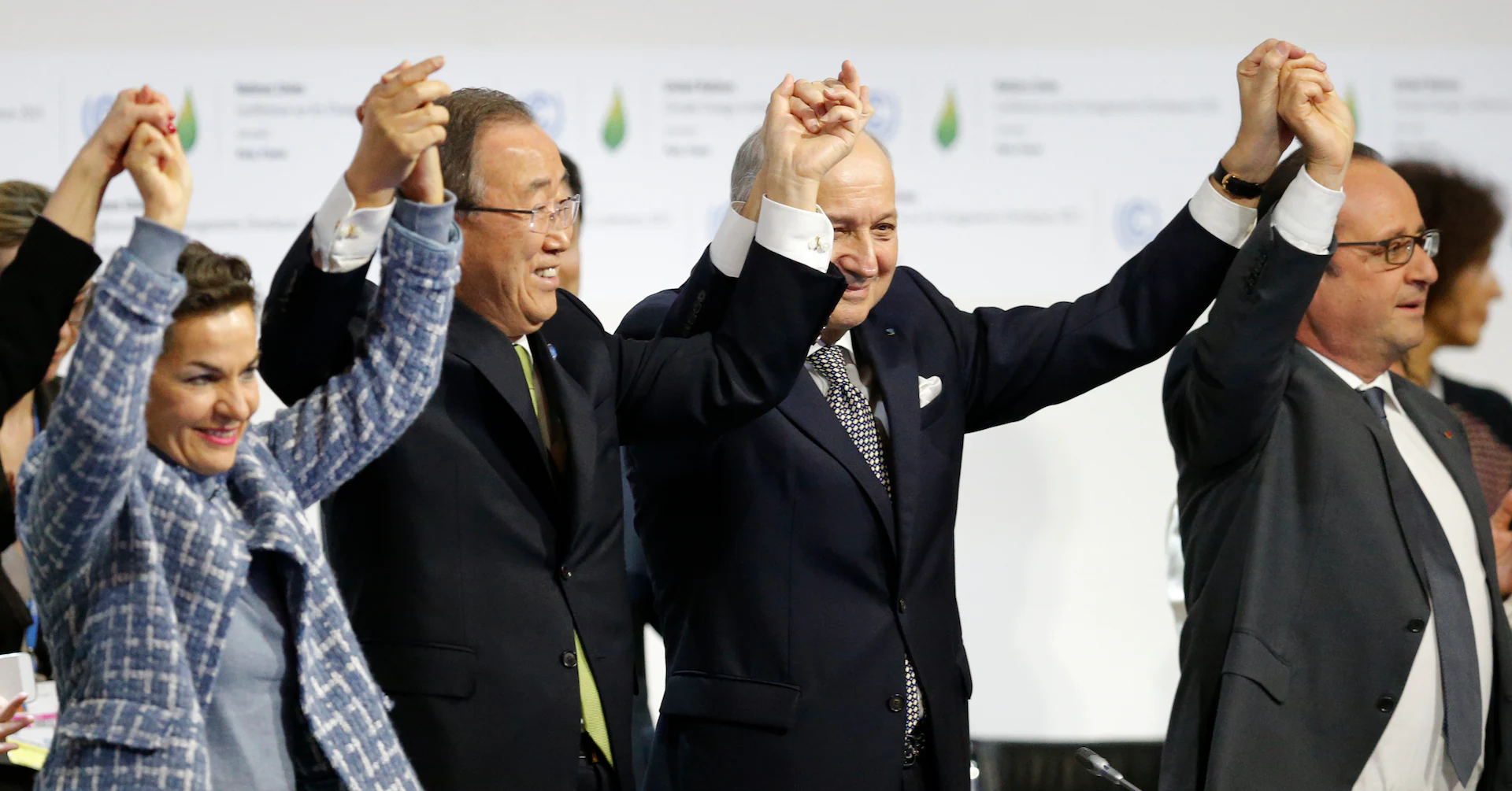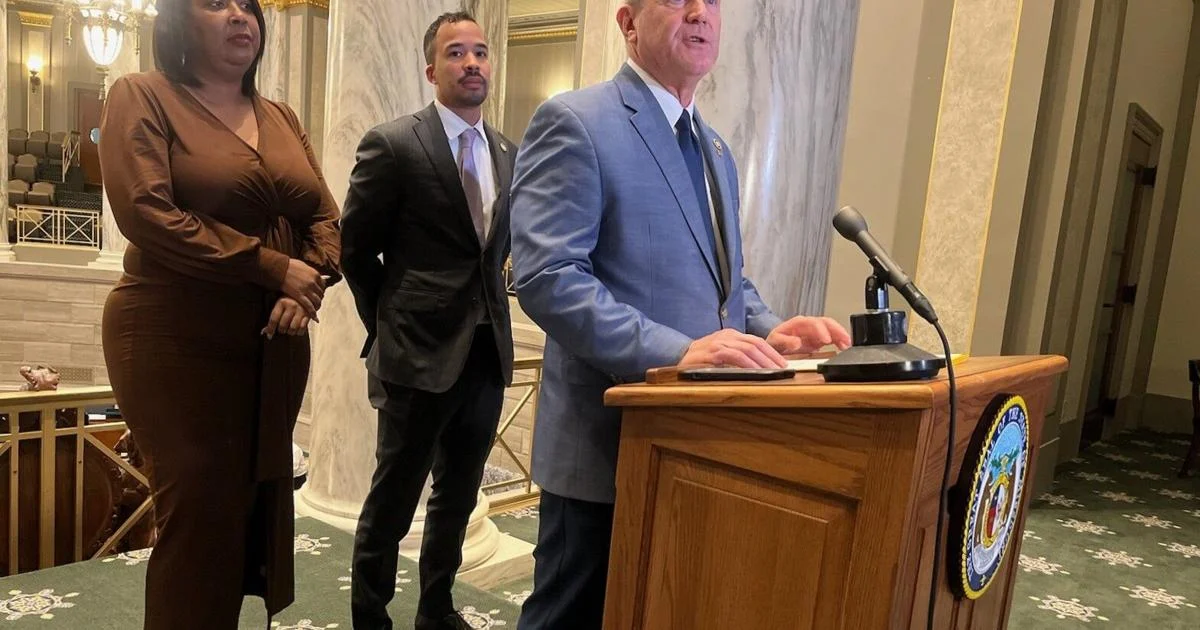Copyright Reuters

October 30 - Ten years ago, the Paris Agreement transformed the politics of climate change. It did what decades of fragmented diplomacy could not: it created a shared global framework that made climate policy investible. By setting a collective goal to pursue efforts to limit global heating to 1.5°C and requiring every country to strengthen its plans over time, it gave governments, investors and businesses a direction of travel. That signal unlocked trillions in capital and spurred thousands of companies to align with science-based targets. When the We Mean Business Coalition was founded, one of its first major impacts was helping to secure the Paris Agreement by demonstrating that companies wanted clear, ambitious climate policy – and that business momentum could help make it politically possible. The progress is visible. The clean energy transition has become one of the fastest economic transformations in history. According to the UN, renewables now supply nearly a third of global electricity, up from just 23% in 2015, and account for more than 90% of new power capacity added last year. Solar and onshore wind are not only cheaper than fossil fuels – by 41% and 53%, respectively – but also faster to deploy, with projects typically completed within three years. Global clean-energy investment surpassed $2 trillion in 2024, double fossil-fuel investment, while renewables and electrification have created 34.8 million jobs and contributed around 10% of global GDP growth. Electric vehicles have surged from around half a million sales in 2015 to more than 17 million in 2024. Momentum has carried through successive summits. The Glasgow Climate Pact acknowledged, for the first time, the need to cut coal. At COP28 in Dubai, countries went further, agreeing to “transition away from fossil fuels” and to triple renewable energy and double efficiency by 2030 – something championed by We Mean Business Coalition and others. That signal mattered. It gave markets certainty that the fossil-to-clean shift is irreversible. Today we see the real economy moving. Hyundai is building a $6 billion green-hydrogen integrated steel plant in Louisiana; Heineken is replacing gas boilers with industrial solar heat; Lego is paying a premium for renewable plastics to cut oil dependence; and BT is converting 60,000 old broadband cabinets into EV-charging points. Unilever’s model in India – aggregating demand among suppliers to unlock a 45MW solar plant –shows how collaboration and supportive policy can accelerate progress in developing markets. Yet the scale of the challenge dwarfs even these efforts. Floods, fires and heatwaves, intensified by fossil-fuel use, are driving up costs and destabilising communities. Last year alone, Europe’s extreme-heat losses topped 43 billion euros in the short-term, with costs expected to rise to 126bn euros by 2029. Business understands that delaying the transition is a big expense, while acting creates an asset for the future. But investment still needs political clarity. This is why multilateralism remains indispensable. Climate change, like financial stability or public health, does not respect borders. The Paris framework, with its regular ratchet of national commitments, provides long-term accountability that domestic politics rarely sustain. Other multilateral achievements – from the Montreal Protocol to the European single market – show that collective rules can steer markets toward common goals while keeping competition fair. The recent UN NDC Synthesis Report welcomes a new generation of nationally determined contributions, or climate plans by individual countries, that is broader, more credible and more closely tied to economic development, with more countries engaging the private sector in their design and delivery. Yet overall ambition remains insufficient to send the strong signal business needs to accelerate investment. The Paris Agreement is working, but it must now work faster and more fairly. Governments and business must collaborate to create the fiscal and financial conditions that make renewables, efficiency, and resilience the most attractive investments across every sector. COP30, the first summit in the Amazon, will test whether governments can turn global ambition into credible domestic policy. Hosting the talks in the world’s largest tropical forest is a reminder that nature and climate are inseparable. Forests regulate rainfall, carbon and soil systems that underpin economies far beyond Brazil’s borders. At COP30, for a credible transition to a clean and stable future, countries must work to end deforestation and align fiscal, trade and finance policies with nature-positive growth. Electrification will be the cornerstone of that transition. Cheaper energy storage, expanding grids and electrified transport are bringing the energy system to a tipping point. But faster progress depends on national plans that actively enable electrification through investment in grids, storage, heat pumps and EV charging. Businesses are clear on what governments must do next. Redirecting even a fraction of the $1 trillion still spent annually on fossil-fuel subsidies to reward clean investment would release vast new capital for renewables, grids and storage. Reformed energy markets should let prices reflect the true, lower cost of clean power; targeted tax incentives and carbon pricing can accelerate the shift. These are not only climate measures; they are sound economic policy that cut bills, enhance security and strengthen competitiveness. Business has shown that when policy gives clarity, markets move. A new economy is rising and COP30 can accelerate it with more credible NDCs, predictable rules and a renewed multilateral commitment to cooperation. Opinions expressed are those of the author. They do not reflect the views of Reuters News, which, under the Trust Principles, is committed to integrity, independence, and freedom from bias. Ethical Corporation Magazine, a part of Reuters Professional, is owned by Thomson Reuters and operates independently of Reuters News. María Mendiluce is CEO of the We Mean Business Coalition, which brings together seven leading non-profit organizations in sustainability. She has 25 years of experience in corporate climate action and sits on the executive board of the Science Based Targets initiative. María took an active role in the founding of the Mission Possible Partnership, a multi-sector decarbonization initiative, and co-founded the SME Climate Hub, an SME-focused net-zero initiative.



